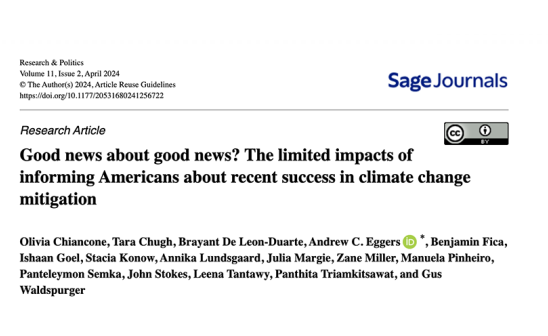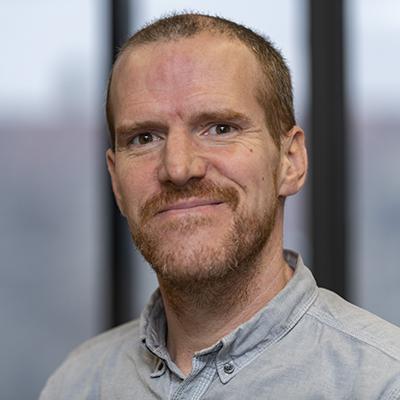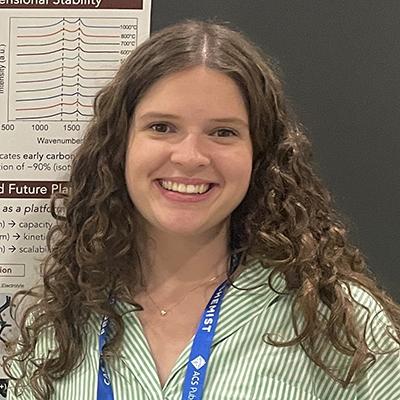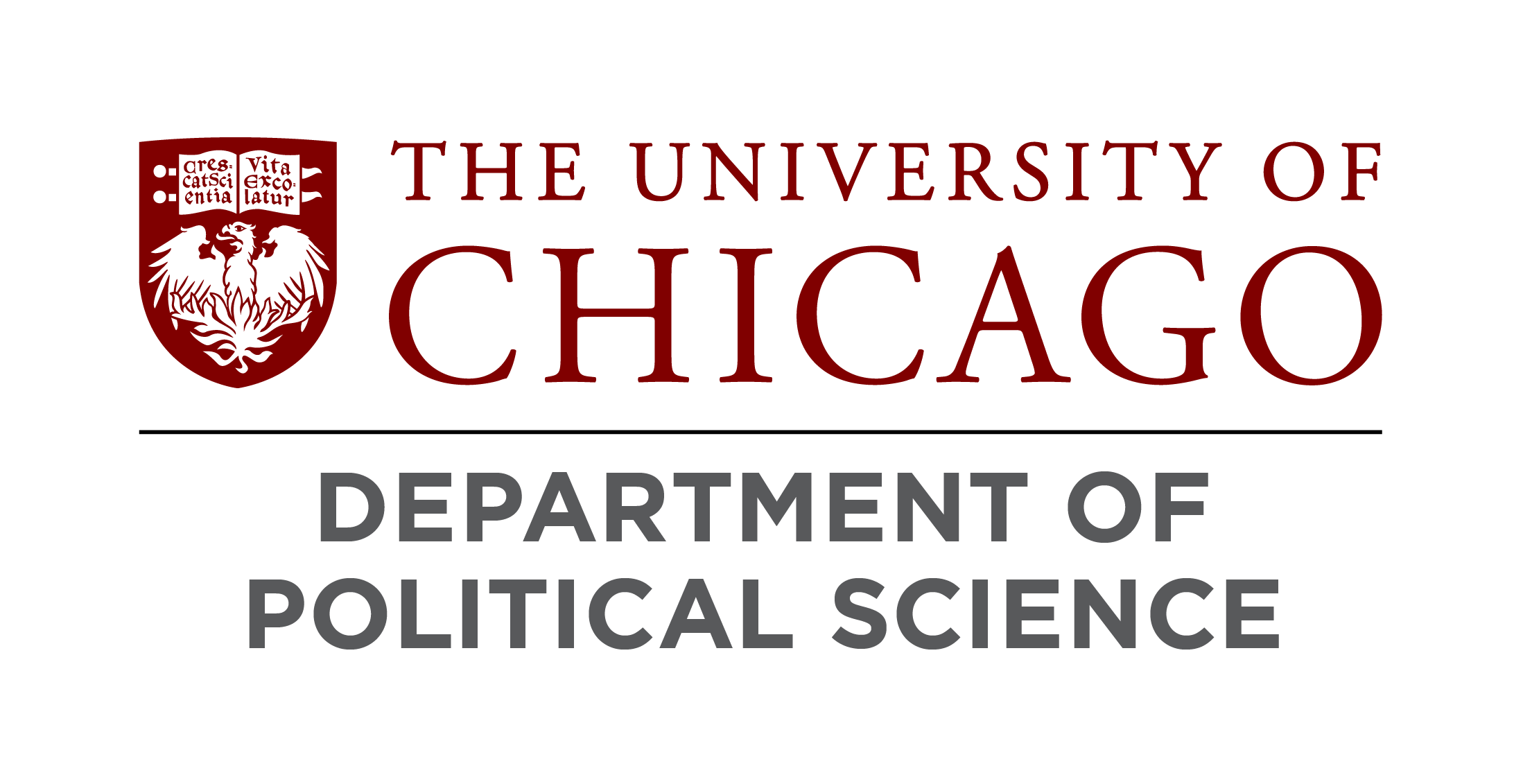College Students Co-author Scholarly Article on Climate Change Attitudes

The final quarter of a Social Science Inquiry sequence, taught by Andrew Eggers, saw students collaborating on the design and execution of a social sciences research study, which found that good news on climate change mitigation doesn’t demotivate people.
By Sarah Steimer
Group work has a stereotypically bad rap. But collaborating to design, execute, and analyze a research project not only helped motivate undergraduate students, it led to their first authorships of a published article in Research & Politics, a Sage Journals publication.
In the third and final quarter of a yearlong Social Science Inquiry sequence, Political Science Professor Andrew Eggers provided students with the opportunity to work together on a study about climate change.
Prior to Eggers’s class, the sequence set students up with the tools to understand and perform social science research: they learned about the philosophy of science, probability, coding, regression, research design, and other approaches to social science theory.
“They come to this third quarter with some skills, but now it’s time to put these things into action,” Eggers says.
In previous iterations of the class, students decided on individual topics, move through their own research project, and then write a paper. In this version of the class, everyone contributed, collaborated, and divided responsibilities on a single study.

“Our goal was to publish something,” Eggers says. “I thought it would raise the level of interest that people could feel, because they were taking part in real research.”
It did, in fact, help to drive the students in a new way. Manuela Pinheiro, a molecular engineering student who took the course, says it made the class much more interactive than just lectures, reading, and homework.
“It felt like a project where we were all contributing equally, and we were actually doing something that I think made us more motivated to actually show up and do the work,” Pinheiro says.
Eggers focused the study on something that had recently piqued his own interest: He had been surprised to learn that, in some ways, the efforts to fight climate change were going better than he’d expected — which made him feel more inclined to see how he could help make further progress. As such, he and the students would explore whether learning about the success of climate change mitigation efforts also sparked optimism in others and motivated them to do more.
The class spent a couple of weeks learning about climate change research, public opinion, and how other scholars have approached the topic. They landed on a study question: Will wider recognition of this “good news” strengthen or soften support for further action? Previous literature suggested that giving people good news actually made them less inclined to do anything.

Students then proposed their own designs before the group narrowed down the proposals to a single design and survey, with students writing survey questions. Eggers used some of his own research funds to send the questionnaire to participants.
The survey was designed as a quiz on climate change, with some questions meant to intentionally catch people being overly pessimistic. For example, participants were not likely to realize how much cheaper creating solar power had become. Some of the participants would then be told the correct answers (i.e., the “good news”), learning that the cost of solar power had actually gone down substantially in the last 20 years. Everyone was then asked whether they personally wanted to take steps to address climate change, such as paying additional taxes, supporting green industrial policy, or donating to a climate NGO. The analysis compared answers of the people who had gotten the good news to the answers of those who hadn't.
Once the class received the raw data, each student did their own analysis and wrote up papers on the gathered results. The final article found no average impact of factual reports of climate progress on Americans’ worries about climate change, their perception of efficacy in fighting climate change, or their willingness to make additional efforts themselves.
Eggers says the practical takeaway of the study is that people shouldn't worry about spreading good news about climate change mitigation efforts: “We shouldn't be reluctant to tell people that there are way more people working in renewables than in the coal industry,” he says. “That's not going to make people say, ‘Oh, you know, maybe I don't need to try so hard to deal with climate change.

“It doesn't demotivate people, which I'm reassured by. It doesn't seem to motivate them either, which is maybe not a shock.”
In addition to the research takeaways, the students themselves left the class with their first peer-reviewed journal authorship.
“I will say, in the beginning, I had some doubts that this was truly going to be possible: if we were going to truly be able to publish an article,” says Brayant De Leon-Duarte, a math and economics student who took the course.
“But that was the main motivator throughout the quarter, there was more at stake now because we're actually trying to get something published. When I actually saw that we got published, it was an incredible feeling.”
 THE UNIVERSITY OF CHICAGO
THE UNIVERSITY OF CHICAGO

